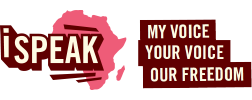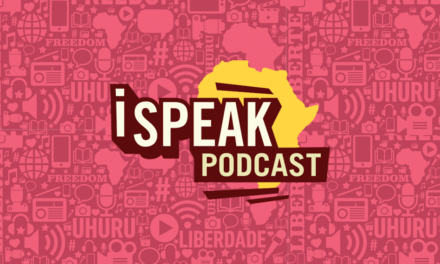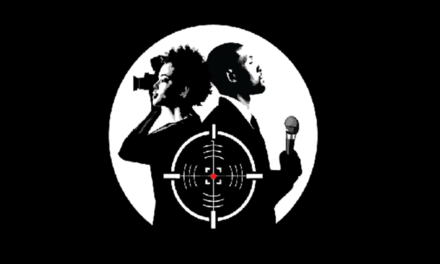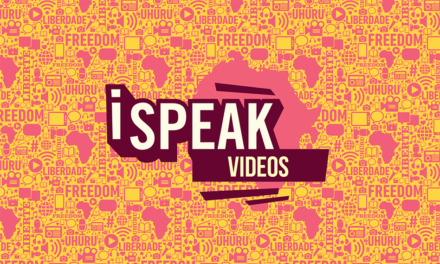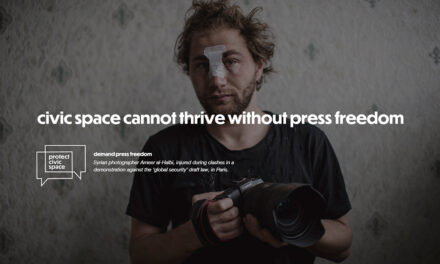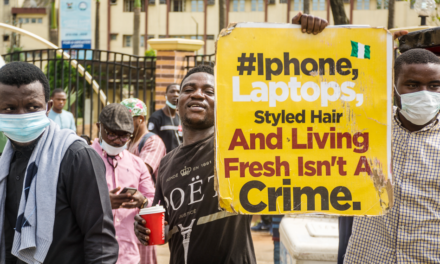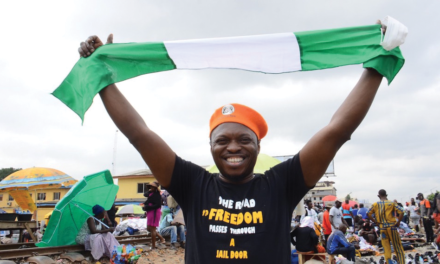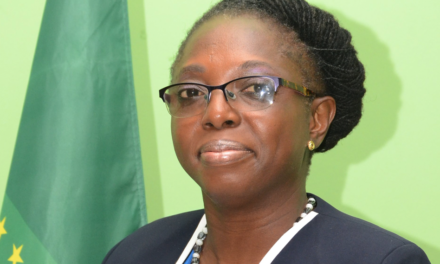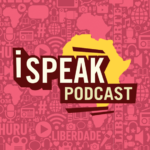
Revolution through radio to bridge gender inequalities

Nigerian women are using radio to revolutionise their struggle for gender justice in their country.
Media engagement primarily through radio is playing a more strategic role in increasing the visibility of women and their issues. Radio has become one of the most highly employed platforms for organising engagements by women’s groups in advancing women’s rights in Nigeria. It offers women’s groups multiple opportunities. Radio allows women to:
- Set their agenda;
- Give women’s groups the opportunity to mobilise for positive behavior modification and adoption towards gender equality, and, most importantly;
- Give voice to women’s groups and their allies to demand the change they want to see in Nigeria. Radio is now a huge platform for social change. It is also a good road towards education and illumination, and for forming and sustaining opinions, and for entertainment.
Consider that women’s groups have a long history of organising in Nigeria, with inspiring herstories, that date back to the Aba women’s protest in 1929; Egba women’s protest of 1947, led by Funmilayo Ransome Kuti; and the works of Margaret Ekpo in the then Eastern Region in the independence movement; and Gambo Sawaba in the then Northern Region, with women in the 19 Northern States gaining suffrage only in 1979.
While the visibility of early women’s activism cannot be credited to media in the real sense, however, these herstories are preserved through documentation and amplified through traditional/legacy media – television, newspapers, oral histories and, of course, radio.
By understanding the power of media, and especially radio, the new generation of feminists and women’s rights groups are boosting their work. They understand that radio is a powerful tool to amplify messages and issues (that may contribute to behavior change, and to shifting power for women and girls). The 21st century feminist recognises that radio, and other new media, are revolutionary tools towards change that women desire and want sustained.
In recognising the power of radio, women’s groups are seizing the opportunity that radio offers for their work. Whether for challenging oppression and injustice, demanding socio-cultural transformation or for holding policy makers and government accountable, radio is the revolutionary tool.
“100% of the 28 women’s rights groups that ActionAid Nigeria subgrants under the Women’s Voice and Leadership Nigeria Project (WVL) who implement programmes at state and national levels, uses radio programmes for strategic engagements especially during key moments such as International Women’s Day, Day of the African Child and during the global 16 Days of Activism to end gender-based violence”.
Niri Goyit, WVL Project Coordinator, North.
Nigerian radio programming has also recognised the need for focusing the lens a little more intentionally – so that contemporary topics such as feminism, intersectionality, dismantling of patriarchy and shifting power for women are highlighted. This also means gender justice discussions are less likely to be shied away from by many radio stations in Nigeria.
For instance, the WFM 91.7 MHZ, popularly called Women Radio, designs their programming through a women’s rights lens. It commenced operations in Nigeria on 16 November, 2015 and is the first gender-focused radio station slanted towards women and their issues.
This is a remarkable addition to the advancement of women’s empowerment in the country. Women Radio is a current partner under the Women’s Voice and Leadership Nigeria Project, funded by Global Affairs Canada and implemented by ActionAid Nigeria. The station focuses on projecting rights of women and girls, while also providing platforms for other women’s rights organisations to advocate, educate/create awareness on a broad range topics on women’s rights.
“I have added radio to the tools I use in engaging the political space in Nigeria. Under the WVL project, I used radio to advocate for a constitution that Nigerian women want. This focused on creating awareness on sections of the Nigerian 1999 Constitution as amended that women and women’s groups over the years have raised concerns about. Using the radio to amplify these issues helped me in killing several birds with one stone. I reached the policy makers, I reached government, and I reached women and many more persons that are relevant for the change my constituency wants”
Barr, Ebere Ifendu, President, Women in Politics Forum
The growth of community radio stations should also not be ignored. Community radio offers even more advantages for communicating empowerment programmes to a large group of women. Community radio is a remarkable educational and empowering platform for women in the community and grassroots to converse, engage, and voice their opinions as they choose to. These programmes have been designed to make women critical thinkers as well as creating large scale change at community level. Agriculture programmes and livelihood options are disseminated in simplified formats, using local languages to reach communities and especially women. These formats assure inclusivity and diversity.
What all this points to is that with the advancement in technology, and especially the new media, radio remains important and vital. Radio stations have incorporated this new media as part of their programming. On air personalities are using WhatsApp messages to communicate with audiences – sending and reading chats on air. In this way they are engaging young populations – including women – on core issues of gender justice and empowerment. The best part is that even with the new technology, radio remains an option for most people without access to the internet.
“Radio is a tool that allows me to amplify the issues that are dear to my heart. It also amplifies my work and gives my project and organisation the visibility we need to cause change to happen in the community we work in, so it complements the other medium that I use. I am a gender advocate and have an NGO and because I depend on donor funding and philanthropic donations, my resources are limited, and additionally, I cannot be everywhere knowing my limitations. So, radio and social media come to the rescue. From my programming experience, community women listen more to radio and so during the 2021 16 Days of Activism against Gender-based Violence, I had to take my programme to a radio station. Through the programme, my target audience and the public were enlightened on the issues of violence against women and girls on Radio Nigeria. The outcome of the programme was overwhelming as women from rural communities across Nigeria called in to express their views on the issue of VAWG and how they have experienced one form of violence or the other. The radio programme enabled many listeners to access information on the responsible agencies within their states that provide supports for survivors. It also had men calling to report cases of VAWG. This was possible because Radio Nigeria is a networked and national radio station”.
Nkechi Obiagbaoso-Udegbunam, Executive Director, Initiative for Women’s and Girls’ Rights Advancement, (IWOGRA) Abuja
As such, the importance and use of radio cannot be ruled out. Radio programming has to continue being designed so that it remains interactive, fun, and entertaining as this draws more audiences, which in turn deepens the impact.
